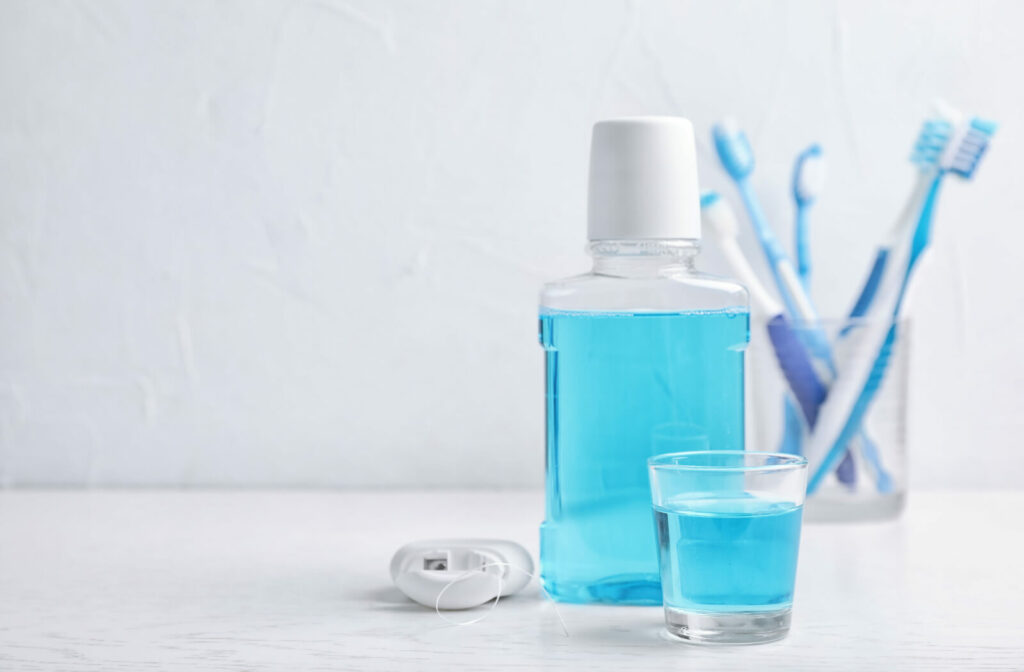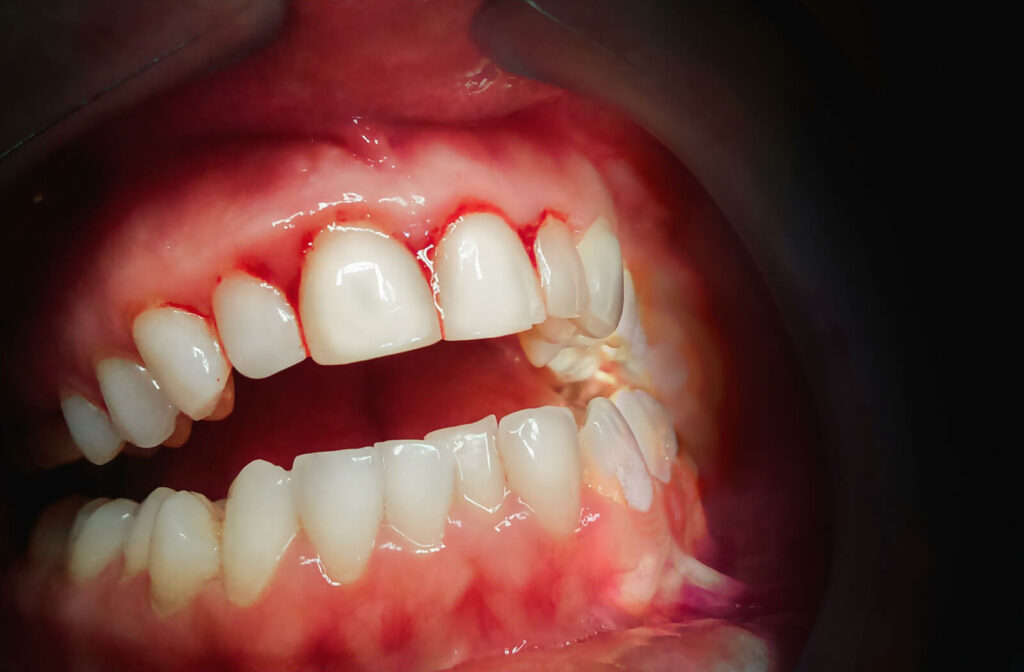Gingivitis is a disease that affects the gums, often causing them to become inflamed, tender, or bleed. Suppose you sometimes forget to brush your teeth in the morning or remember to floss. In that case, you may have already encountered these common gum problems.
Gingivitis is contagious and can be spread from one person to another, however this is rare. A daily oral hygiene routine can reduce the risk of contracting the disease.
At Arch Dental, we can offer numerous services that help to combat gingivitis. Keep reading to learn more about gingivitis and ways you can prevent it from happening in the future. Don’t let the disease cause discomfort in your life; seek advice today.
How Does Gingivitis Spread?
Saliva protects our mouth from the different bacteria it may encounter. Still, sometimes the spread of saliva and bacteria from another can cause gingivitis. The chance of gingivitis being shared through saliva is slim but more likely in people with poor oral hygiene. Sharing drinks, kissing, or any activities that might result in spreading saliva can lead to the disease.
What is Gingivitis?
Gingivitis is a mild form of gum disease that can result in some discomfort of the gums and inflammation. It is typically caused by a plaque build-up on the teeth but can be reversed with proper oral hygiene and a visit to your dentist.
If left untreated, gingivitis can have more serious complications and lead to a disease called periodontitis, which damages the bone that supports your teeth.
Symptoms of Gingivitis
Some of the common symptoms of gingivitis include:
- Inflamed, tender and dark red gums
- Bleeding in your gums after flossing or brushing your teeth
- Bad breath
- Receding gums
- Mouth sores
In some cases, gingivitis might not have symptoms, so it is important to schedule an appointment with your dentist to evaluate your oral health.
What Causes Gingivitis?
Gingivitis is generally the result of plaque build-up and poor oral hygiene. Still, other factors could put you at greater risk of developing the disease. Here are a few things that could cause gingivitis:
- The hormonal changes experienced during pregnancy or puberty make gums more sensitive and can increase the likelihood of developing gingivitis.
- Cancer, HIV, Diabetes, and other immune system illnesses can lead to gingivitis.
- Some types of medications may have side effects that lead to gingivitis.
- Smoking can make it more difficult for the gums to heal itself and is known to lead to gingivitis
- Poor oral hygiene habits can lead to gingivitis.
- Genetic factors that may have been passed down from your parents and family
If you are experiencing any of these symptoms, book an appointment at Arch Dental and have your teeth professionally cleaned.

Can You Cure Gingivitis?
Gingivitis is curable, and you can reverse its effects on your gums. We recommend booking a professional cleaning with your doctor to remove any built-up plaque or tartar. Your doctor may recommend medications, gels, or surgery for more serious cases.
There are some at-home remedies and solutions that you can try to ease discomfort and reduce the effects that gingivitis may be having on your gums.
Saltwater Rinse
Some studies have shown that rinsing your mouth with salt water can help the body to heal from gingivitis.
Oil Pulling
Using coconut oil to rinse in your mouth and spit out may reduce bacteria and help slow plaque buildup on your teeth.
Some Homemade Mouthwashes
Mouthwashes made of lemon oil, aloe vera, and sage have all been known to reduce plaque buildup and the number of bacteria in the mouth.
Anti-Gingivitis Toothpastes and Mouthwashes
Some toothpaste and mouthwashes can be used to minimize gum bleeding and combat plaque buildup on your teeth.
These solutions may help to ease some discomfort and speed up the healing of your gums. However, it is still important to contact your dentist and schedule an appointment for a professional cleaning.
How to Take Care of Your Gums
The best way to take care of gingivitis is never to get it in the first place. Here are a few preventative tips and tricks you can follow to try and avoid getting gingivitis in the first place.
- Brush your teeth twice per day
- Try to avoid smoking or using any tobacco products
- Floss regularly while making sure to get in between and around your teeth and gums
- Invest in an electric toothbrush that does a better job of removing plaque and tartar
- Book regular exams with your dentist to get your teeth and gums examined and cleaned
Understanding When to Seek Help
Suppose you have been experiencing any of the symptoms mentioned above, like bleeding or receding gums, mouth sores, or chronic bad breath. In that case, booking an appointment at your local dental clinic for a cleaning and examination is a good idea. The team at Arch Dental is here to help!
Contact us today if you are experiencing any discomfort.


